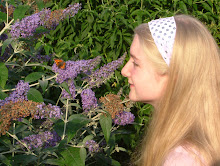Scott Westerfeld is one of the belles of the ball at the moment in YA fiction. And rightly so.
'Uglies', the first in his series of the same name, is...brilliant. Westerfeld combines speculative fiction, a touch of philosophical meandering to get the leetle grey cells going, well-realised characters and style decidedly lacking in pompous self-importance. I realised after sitting on the bus with my eyes glued to the page for the first few pages that Westerfeld has realised what so few writers do: sometimes, style needs to be invisible. It seems effortless, and I found that I didn't even notice I was reading to some extent. Things just seemed to happen inside my head as I read. I really feel like I've been told a story.
The setting of 'Uglies' has to be read to be fully felt, I think, but the basics of it is that at the age of sixteen, every child in the city (and all of the cities across the country/world as far as we know in this book) is given an operation that physically alters them to make them fit an idealised standard of beauty. It's a simple idea, but Westerfeld runs with it. There are no 'Anathem'-style chunks of exposition here: the details of Westerfeld's world almost slip in round the edges, often not mentioned until the characters encounter them. This can be confusing at first, but you can rest assured that everything you need to know will be told later. I always find it distracting when someone in a sci-fi novel reflects on how the things they've been familiar with all their life work. I mean, I vaguely know how a car and a TV work, but I don't use one and think, "Ah yes, that is the internal combustion engine at work there, first patented in 1861" (I had to look that up and it's probably wrong). So in 'Uglies' we don't get an explanation of how hoverboards work until they stop, or the technology that allows people to navigate computer screens by thought and eye-movement.
There are interesting Matrix and Equilibrium-style (among other things) issues of free will, authority, conformity, the honesty and brilliance of natural human emotion, beauty and the influence it has on society, but Westerfeld doesn't bother us with long philosophical rants on the matter, expounding his theories to make sure we get the point of the novel. Nope, he trusts us to get the point, and if we don't, at least we get a good story along the way. And there are advantages to being 'pretties'. Endless food, a beautiful city, parties all the time, literally eternal contentment. And youth and beauty for as long as your body can stand the life-extending treatments. I know several people who would go for that without question.
So when Tally Youngblood, our hero, finds herself running away to join a rebel faction of 'uglies' (pre-op people) who refuse to be turned 'pretty', we really sympathise with her whining. I'm not sure I'd give up New Prettytown for that. But Tally changes, as people do. It's what makes this good - a good setting is nothing without great characters, and Tally is awesome, with her quick mind and almost unconscious bravery. I think a big part of the whole idealised female character/Mary Sue thing is that they rarely go through a genuine change. Oh sure, they have superficial 'flaws' at the start, and might even have them still by the end, but on the way they discover how wonderful and heroic they are inside, usually with the help of a male love-interest. Tally starts out a whiny, unpleasant character, a slave to the conditioning she's undergone throughout her life. She is brave, sure, but also kind of pathetic at times, because she's learned to be reliant. And then she is forced to become self-reliant. There is a male love-interest, but the only thing she needs him for is the realisation of that whole beauty-comes-from-within thing. Other than that, she learns because she has to, she adapts, and she becomes a strong character who is both sympathetic and awesome.
Literally the only flaw I can come up with for this novel is the story. It's a bit...simple. If you wrote out the events, not that much actually happens. In the same way, the intuitive way Westerfeld doesn't over-explain the issues brought up by the story or the technology of the setting makes it seem a little slight as a sci-fi novel. But that's actually kind of fine. 'Uglies' is never dull, never boring, because even the slight tension that's there is wonderfully handled. It feels almost like half a book, but at the same time, I wouldn't have Westerfeld condense this any further, and while I want to read the next part of the story desperately, the first was substantial enough to keep me going for a while.
Monday, 10 May 2010
Subscribe to:
Post Comments (Atom)

No comments:
Post a Comment